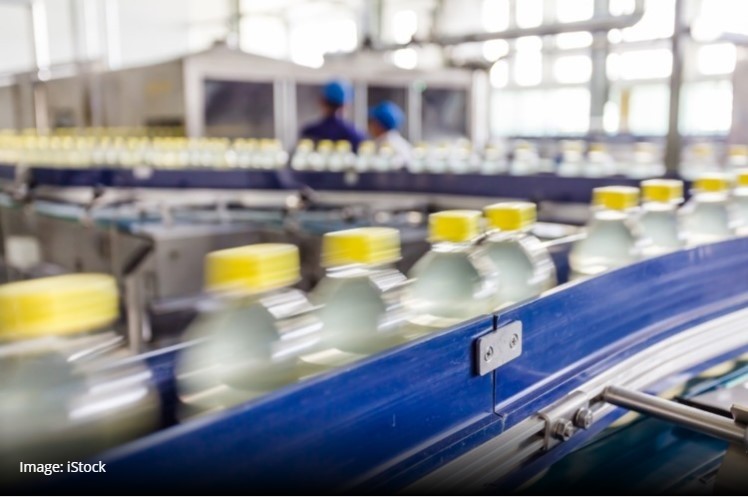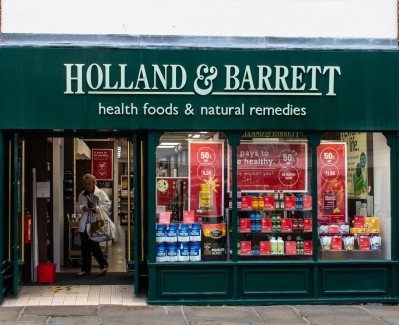COVID-19 outbreak exposes supplier’s supplier as manufacturing chain weak link

Analysis by ABI Research finds that disruptions to raw material supply as a result of the outbreak, along with consumer stock piling means retailers are having to impose purchasing limits on certain products.
“Initially, plant managers and factory owners will be looking to secure supplies and be getting an appreciation of constraints further up the supply chain plus how much influence they have on their suppliers,” comments Michael Larner, principal analyst at ABI Research.
“To mitigate supply chain risks, manufacturers should not only not source components from a single supplier but also, as COVID-19 has highlighted, shouldn’t source from suppliers in a single location,” Larner advises.
ABI Research, a global tech market advisory firm, adds in its report, ‘Supply Chain Trends and Technologies in 2020,’ that in the longer term, manufacturers will need to conduct an extensive due diligence process to understand their risk exposure.
“COVID-19 demonstrates that manufacturers need to be as focused on their supplier’s capabilities as they are on their factory floor,” the report adds.
China resumes operations
The bulk of dietary supplement ingredients, botanical or otherwise, now come from China and factories there have reportedly, in large part, returned to full production,
However, the pause in operations may still cause shortages that will begin radiating through the supply chain that also extends to sectors such as dairy and beverage.
“Our supply chain for non-nutritive sweeteners and certain other ingredients for our products includes suppliers in China,” notes Coca-Cola in its annual report for the year ended Dec 31, 2019
“As a result of the outbreak of the novel coronavirus COVID-19, beginning in January 2020, our suppliers in China have experienced some delays in the production and export of these ingredients.
“We have initiated contingency supply plans and do not foresee a short-term impact due to these delays.
“However, we may see tighter supplies of some of these ingredients in the longer term should production or export operations in China deteriorate.”
Meanwhile, Sandy Chen, a senior dairy analyst at Rabobank’s RaboResearch says that the impact of the epidemic on the demand for dairy should be short term,
“However, the uncertainty over the actual duration of the impact and the lingering psychological impact could potentially bring meaningful damage to consumption, which then affects processing, production and import.”
Supply chain streamlining
The disruption to the supply chain may lead manufactures to employ cutting edge technology, that aims to alleviate such interruptions and streamline overall operations.
ABI Research forecasts Covid-19’s impact will spur manufacturer’s spend on enterprise resource planning (ERP) to reach $14bn in 2024.
While many ERP platforms include modules for inventory control and supply chain management, considering the outbreak, many manufacturers may also turn to specialist providers.
“Supply chain orchestration requires software to be more than a system of record and provide risk analysis and run simulations, enabling manufacturers to understand and prepare for supply chain shocks,” says Larner.
Industry 4.0 has received much attention, says the report with much of the focus on the activities inside the factory gates.
“But investments in robotics or IoT sensors and the like assume that assembly lines receive a steady flow of raw materials,” Larner adds.
“COVID-19 demonstrates that manufacturers need to be as focused on their supplier’s capabilities as they are on their factory floor.”
Retail limits
ABI Research’s findings into supply chain disruption come as global health food chain Holland and Barrett imposes sales limits to reduce panic buying by introducing a dedicated one-hour shopping window for the elderly and vulnerable
In addition, the chain is also introducing a new call centre to keep up with soaring demand caused by the COVID-19 pandemic.
Meanwhile Amazon announced it is prohibiting shipments of any non-essential goods from its warehouses until the 5 April at least to meet spiralling demand caused by COVID-19.
In a statement on its website Amazon states: “We believe our role serving customers and the community during this time is a critical one, and we want to make sure our customers can get the items they need, when they need them.
“As COVID-19 has spread, we've recently seen an increase in people shopping online which has had an impact on how we serve our customers.
“So in the short term, we are making the decision to temporarily prioritize household staples, medical supplies and other high-demand products coming into our fulfilment centres so we can more quickly receive, restock and ship these products to customers.”















